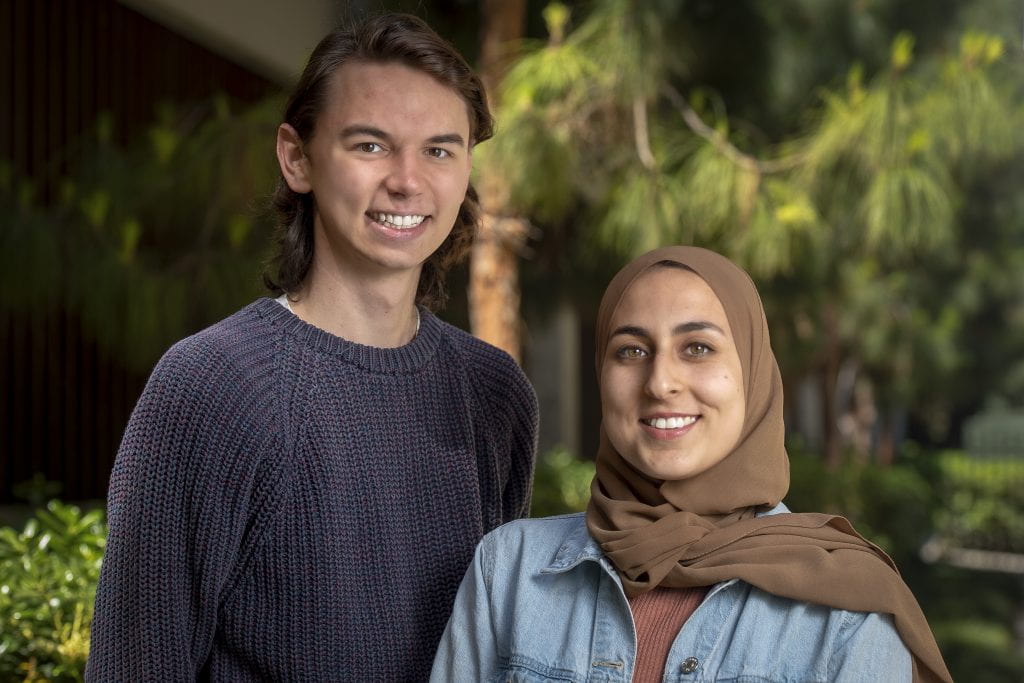Meet Your Consent & Healthy Relationships Community Health Organizers

Jarod Majeika, a USC junior and tour guide, first became interested in public health when his Rhode Island high school health class screened “And the Band Played On,” which depicts the height of the AIDS epidemic:
“I realized that I wanted the most people to be the best they can be and to reach their maximum potential in health, and one policy can affect so much change.”
Now a health promotion and disease prevention major and progressive Master of Public Health degree candidate, Majeika is taking on sexual respect and healthy relationships at USC. He recognizes the issue is multifaceted, but he believes his peers are ready.
“I want to foster a healthy, vibrant environment that allows students to have these discussions at the complex level they are capable of – USC students are the top of their classes and the best in the country,” he said. “I know students want to have these conversations.”
Doctor of Pharmacy candidate Ayah Bany-Mohammed is also passionate about the topic.
“Although I have been blessed to not have experienced it myself, sexual misconduct, harassment, and assault have happened to so many women in my life – friends, colleagues, role models,” says Bany-Mohammed, who hopes to work in a community clinic setting after her clinical rotation. “It drives me crazy that it is so widespread. How can we eradicate this?”
The team will meet with various student groups over the next two semesters. Their first group, says Bany-Mohammed, will be international students.
Data from the 2015 AAU Campus Climate Survey reveals this group had low rates of reporting after a sexual harassment or assault incident. Students with disabilities were less inclined to report as well, she said: “We want to find out what the barriers are and why that is happening.”
Bany-Mohammed says they worked with Relationship and Sexual Violence Prevention and Services in USC Student Health to ensure the information they hear from peers directly informs and helps structure future programs and campus policies.
“This allows me to contribute to the campus community and be a bridge between students and the university,” she said. “And the information we gather will actually be used to benefit students. It feels rewarding to be a part of something meaningful like this.”
Related:
